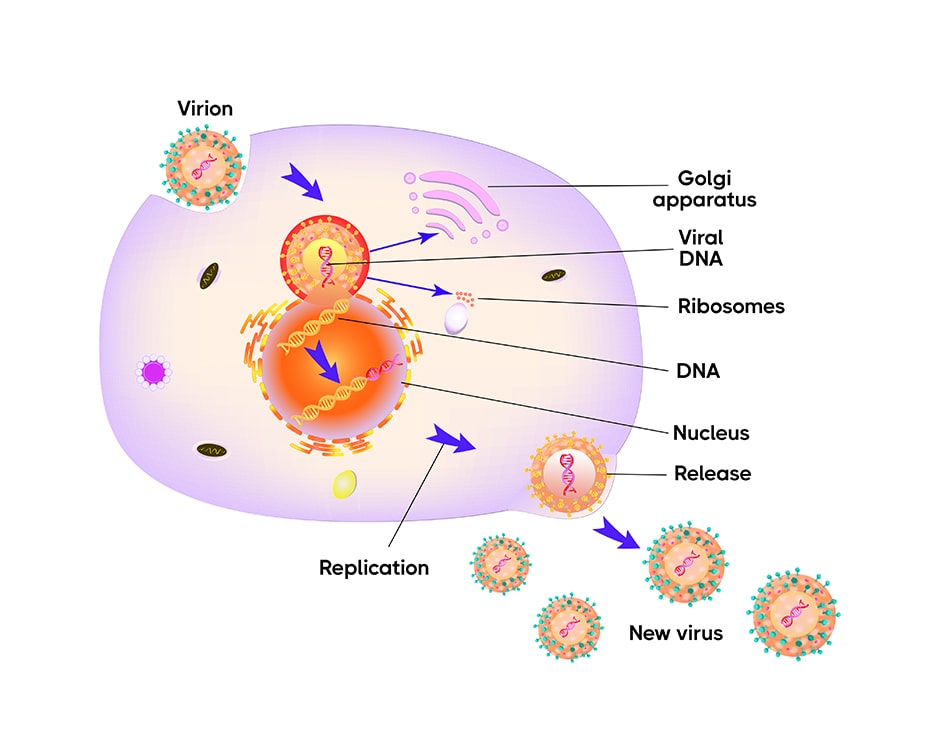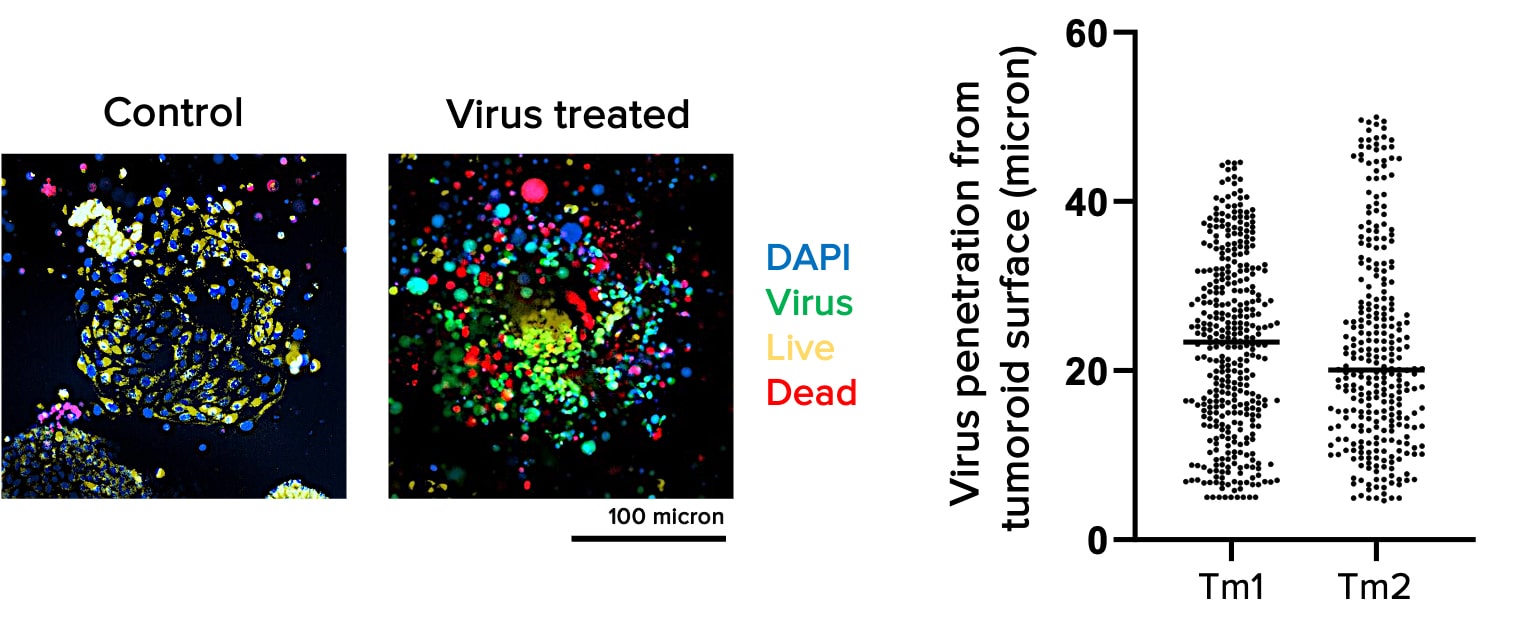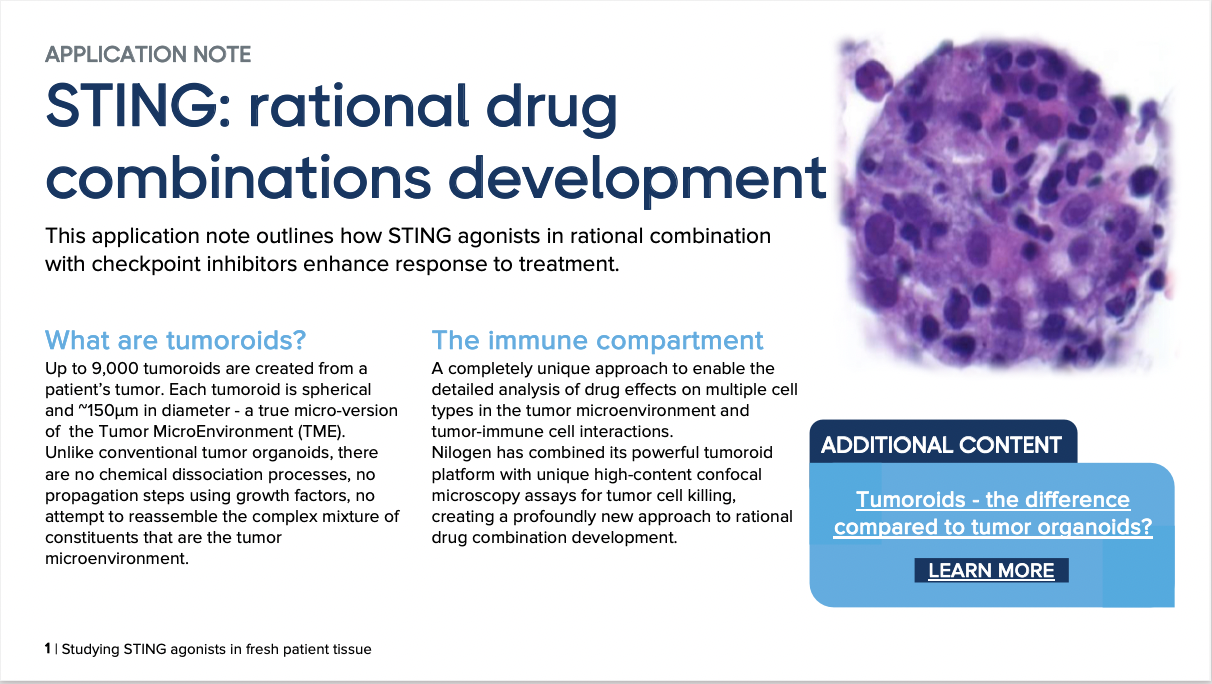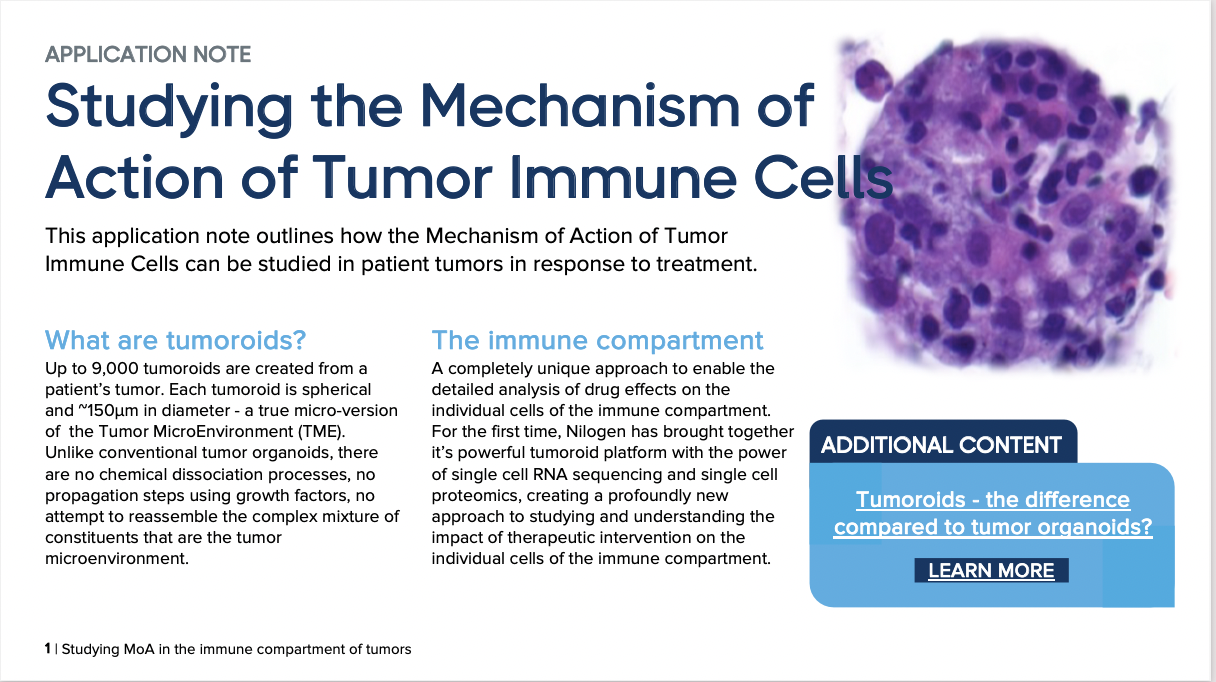Oncolytic Viral Therapy
Oncolytic virus therapy is a class of immunotherapy that preferentially kills cancer cells by oncolysis and may also stimulate host anti-tumor immune system responses.
With advances in cancer immunotherapy, increased attention has been given to using oncolytic viruses to increase anti-tumor immunity.

WHY ARE ONCOLYTIC VIRUSES IMPORTANT?
Oncolytic viral therapy is a class of immunotherapy that provides the ability to directly target tumor cells and the opportunity to harness a patient’s immune system to kill tumor cells, although there are still significant hurdles to overcome. Transductional targeting modifies the viral coat protein to target tumor cells and reduce non-specific effects, whilst transcriptional targeting switches critical parts of the viral genome under the control of a tumor-specific promoter. Placing reporter genes such as Green Fluorescent Protein (GFP) enables the quantification of infectivity, penetration and replication of the virus.
Nilogen’s 3D-EXplore platform enables the direct measurement of oncolytic virus therapy to penetrate the tumor, infect tumor cells and replicate, whilst determining the impact on the immune population in the tumor microenvironment.
Capabilities
Flow Cytometry
Nilogen’s extensive experience in flow cytometry matched with our optimized panels enables our clients to evaluate the immune landscape, T-cell activation, checkpoint inhibition, ADCCs, myeloid function, phagocytosis and cellular proliferation as well as develop and deploy custom panels.
High Content Confocal Microscopy
Quantify and match the ability of your drug to kill tumor cells with the expression of your target antigen, induce phagocytosis and measure penetration into the tumor microenvironment. Evaluate in conjunction with other proteogenomic assays to link mechanisms of action with effect.
Single Cell RNA Sequencing
Enables the quantitative measurement of the molecular activity that underlies the phenotypic diversity of cells within a tumor by sequencing individual cells. Intratumor heterogeneity is common across all tumor types. Accurate characterization of this heterogeneity is essential for determining the mechanisms of cancer pathogenesis and identification of novel targets for immunotherapy and drug development.
TOTALSeq
TOTALSeq works hand-in-hand with scRNAseq to enable the simultaneous measurement of protein and RNA at the single cell level, providing enhanced cell type identification. Evaluating the impact of drug therapy on up to 130 protein markers in conjunction with the transcriptome of each cell enables the single cell analysis of individual immune cells in a heterogeneous tumor microenvironment.
Multiplex Immunohistochemistry
Multiplex Immunohistochemistry/Immunofluorescence (mIHC/IF) provides high-throughput multiplex staining and standardized semi-quantitative analysis for highly reproducible, efficient and cost-effective tissue studies. This technique allows the simultaneous detection of multiple markers on a single tissue section, providing a comprehensive view of tissue composition, pre- and post-treatment.
SCIENTIFIC DATA

Related Resources
Browse our latest posters and presentations using Nilogen's fresh patient tumoroid technology.


